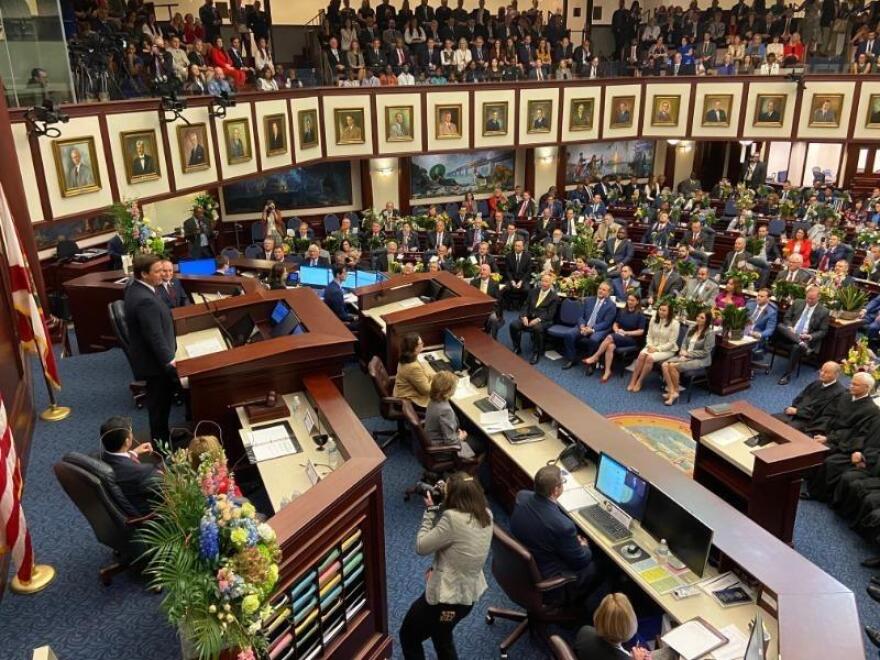Sine die. Those are the magical words that lawmakers, lobbyists and, yes, even reporters, are longing to hear on April 30.
But for the session to end on time, lawmakers will have to come to an agreement on the proposed spending plan for the 2021-2022 fiscal year. They will have to finish working out details over the weekend so the voluminous bill can be completed and given to lawmakers sometime Tuesday. That’s because the budget must be finished 72 hours before the final vote.
While the budget is the one must-pass bill, lawmakers in recent years have been unable to reach agreements to end the 60-day regular legislative sessions on time. Indeed, 2016 was the last regular session to end on time.
Because of the size of the budget and the complexity of the issues, it's not unusual for the health care budget to be among the last spending areas decided. It was all but guaranteed that would also be the case this year, particularly after House Speaker Chris Sprowls, R-Palm Harbor, made a top priority of extending Medicaid benefits to postpartum women for one year. Currently, the benefits are provided for two months, and an extension would cost $240 million in state and federal funding.
The Senate last weekend offered to extend postpartum coverage for six months, proposing to spend nearly $86 million in state and federal dollars on the additional four months of benefits. But Sprowls signaled Thursday that half the year isn't good enough.
“The House is committed to wanting to get that done this year,” Sprowls said. “It’s obviously important to me. It’s important to our members. So we’ll continue that conversation with them.”
Sprowls’ request for the extension caught the Senate off-guard, but it probably shouldn't have. Extending postpartum benefits has become an emerging strategy to help prevent pregnancy-related deaths and complications. To that end, a provision in a federal stimulus law gives states the option to extend postpartum coverage to one year.
In states such as Florida that have resisted expanding Medicaid coverage under the Affordable Care Act, many postpartum women lose coverage because they earn too much money to qualify for the safety-net program but too little to qualify for insurance subsidies on the federal health-care exchange
Meanwhile, the House on Friday offered to come closer to the Senate's proposed health-care spending plan, backing off a proposal to reduce Medicaid payments to nursing homes by more than $80 million in state and federal funding. The House backed off its proposed reductions to hospital inpatient and outpatient Medicaid rates and also (sort of) backed off a plan to slash $226 million in state and federal funding from the the so-called "critical care fund," which provides enhanced payments to 28 hospitals that provide the most Medicaid care in the state.
The House's proposal would continue earmarking dollars to the fund for one year only, allowing it to expire in the 2022-2023 fiscal year.
Meanwhile, as expected, Florida is getting another boost in federal money after the Biden administration extended a public-health emergency, but it’s unclear if the Republican-controlled Legislature will use the extra cash to bolster health care spending. More here.




